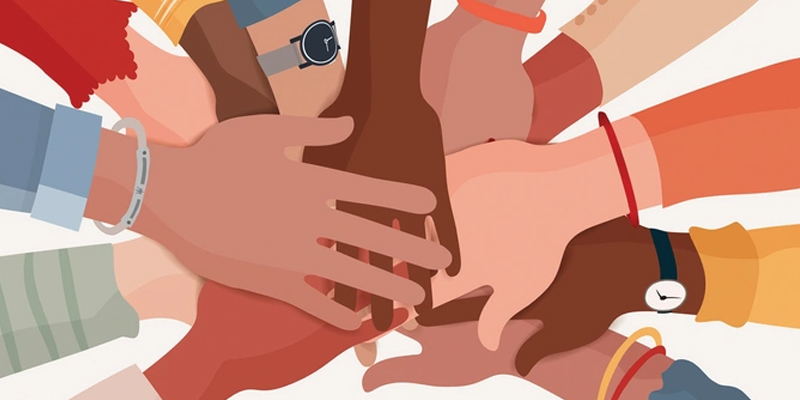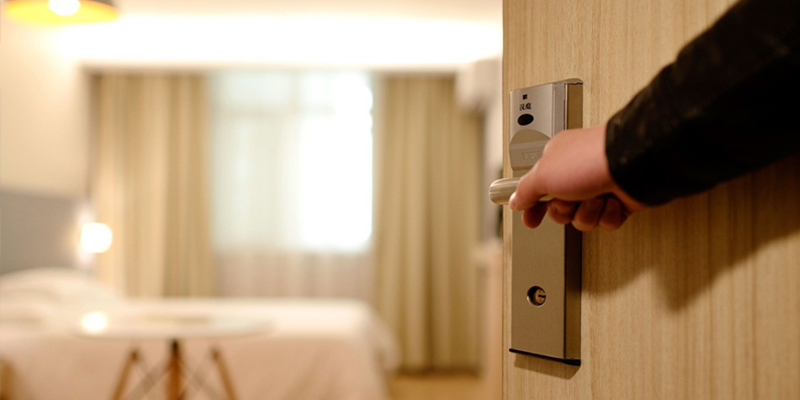In 1970, Alvin Toffler authored a best-seller book that would eventually become one of the seminal works of Futurism. The shortest definition of the book’s title – “Future Shock” – read: “too much change in too short of a time.” Future Shock marked its 50th Anniversary in February, a month that coincidently reflected with America waking up to the threat of a pandemic
It’s all about the efficiency of the service and the consistency of service, because the robots are not disturbed by human moods. Sometimes, we say we are not in the mood, but the system and the robot will always be in the mood.
-Andy Wang, CEO of Alibaba Future Hotel Management
In the book, Toffler argued that the acceleration of technological change creates a sense of “shattering stress and disorientation” – a shock. This is a feeling that has become commonplace; anyone who got up today at 8:55 a.m to log into a company zoom meeting at 9:00 a.m is aptly familiar with this process.
“Shattering stress and disorientation” and “too much change in too short of time” are also current industry sentiments for the hospitality sector – which went from a nine-year growth period to laying off thousands of workers. Let’s put this into perspective: occupancy rates are hitting single digits, airline travel has been pulled down by an astounding 90%, and June job openings – one of the busiest months in hotels traditionally – has declined by 93,000.
Hotels are scrambling to stay alive and hotel start-ups? They are cash-strapped, working day and night to raise additional funding for business continuity. However, the pain of smaller hotel start-ups seems insignificant in the face of the
$25B of debt saddling US hotel owners. Prominent hotel brands are still functioning through the money they make on fees, and the luxury of liquidity and access to secondary capital markets. In contrast, half the hotel owners in the US, mostly small family owned businesses, are in default of their mortgages and risk foreclosure minus financial restructuring or a government bailout.
COVID-19 has become an inflection point for the hospitality industry. The companies that are doing well have been the so-called “outliers” – the likes of Airbnb, Hipcamp, Autocamp.
These companies’ success lies in their technology innovation, quick adaptability, and solution-based business models. So-called disruptors like OYO and Sonder never had a winning real estate strategy and were never designed to solve the many problems already plaguing the industry. However, Airbnb with its internal royalty program – Superhost – changed the game, and showed how the antiquated hotel loyalty programs that were losing steam with the newer generation could be re-engineered. Because that is what Superhost is – a program that Airbnb developed to reward its top-rated and most experienced hosts by giving them prime website space and tags that created a revenue-generation mechanism.
Airbnb’s model should stand as an example of the digital transformation that needs to occur in the hospitality industry – especially as hotels start reopening properties. The hospitality industry has been plagued with problems long before COVID-19 came to the stage and rather, I would argue that COVID-19 just accelerated a deterioration process that the industry was going under its shiny veneer of shallow growth.
Wide-scale business transformation using technology is possible – and should be executed – by boutique and traditional hotel chains. Technological innovation in structure and ideology is the key to surviving COVID-19 as we – according to Laura Wolinsky – do the “slow crawl back to normalcy for traditional hotels.
Although the hospitality industry has shown record profits, the industry has been lagging in tech innovation beyond operational, back-end logistics. Hospitality tech innovation is necessary in a world saturated with smartphones, big data, and evolving consumer tastes. That is why traditional loyalty programs no longer work – a tech-saavy Gen-Z consumer is not interested in uniform design comfort. For a generation that is about unique experiences, local impact, and social conscious Gen-Z wants service that is extremely personalized and local.
But can a traditional hotel imitate the insight and technology adaptation of a “disruptor” like Airbnb? Especially in this COVID-impacted climate? Absolutely.
Wide-scale business transformation using technology is possible – and should be executed – by boutique and traditional hotel chains. Technological innovation in structure and ideology is the key to surviving COVID-19 as we – according to Laura Wolinsky – do the “slow crawl back to normalcy for traditional hotels.”
Across the Yellow sea, the experiment with hotel robots has been less positive. After an expensive experiment, More than one Japanese hotel operator fired robot service assistants due to customer complaints and malfunctions.
But assuming Alexa in your room, a social credit system and the robot weaponized housekeeping crew are inevitable in China, could significant or even complete automation be the answer to the hospitality talent crisis in the U.S.?
Some automation is inevitable, especially in the U.S. market, where full–service hotel labor costs average 45% of the income statement versus only 29% in 1980. But domestic travel accounts for over 85% of trip dollars spent in the U.S. So how would the U.S. customer respond to automated full–service hotels? Recently, Deloitte Digital released a white paper called Human Experience (HX) in Hospitality that measured human values of nearly 50 hotel and home share brands across all segments. Deloitte looked at how hospitality companies harness the power of human experience to increase guest loyalty and drive revenue. They found that hotels win only when they deliver a truly elevated human experience. Consider these findings:
There is a window of opportunity for industry leaders to invest in people, reinvent operating models and modernize the people side of the hospitality industry.
It’s easy to argue that like other highly unionized industries that suffer from labor cost increases that outpace revenues, automation is the answer. But hotels are not a factory. The Deloitte research confirms that if Airbnb and the growth of boutique hotels have proven anything, it’s that travelers around the globe want humanized, local experiences.
Still, automation presents an opportunity for hotels to redesign the customer service journey to correct the gaps in their brand standards. It could enable employees to focus on delivering a more human experience. In the coming years, with the wave of new hotel openings, there is a window of opportunity for industry leaders to invest in people, reinvent operating models and modernize the people side of the hospitality industry. As in the airline industry where Southwest inspired the discount airline revolution, the winners will not be the design or chef-led lifestyle brands. The winners will be the truly people-driven (not technology or real estate driven) brands that succeed in recruiting and retaining a healthy pipeline of talent who are ambassadors, entrepreneurs and contributors to their local communities.



